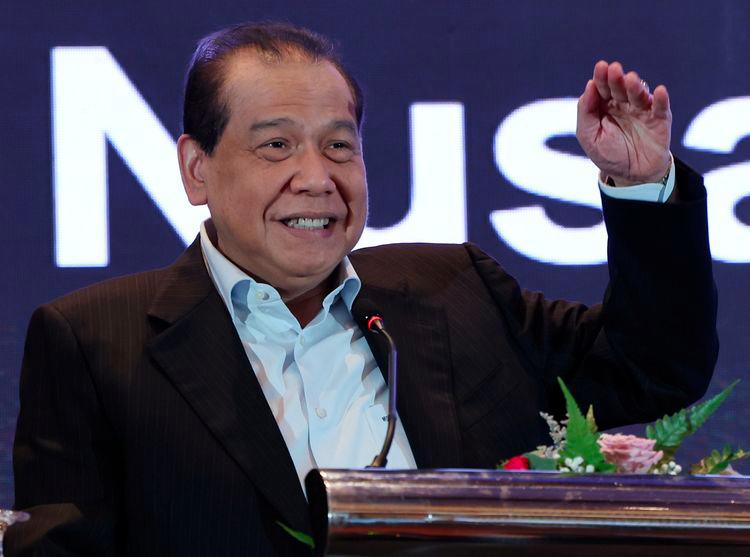PUTRAJAYA: The affirmative action taken by Prime Minister Datuk Seri Anwar Ibrahim’s administration to protect Bumiputera interests is a positive step, according to Indonesia’s former Economic Minister Chairul Tanjung.
Chairul, who is Indonesia’s seventh richest man and the founder of one of Indonesia’s largest diversified conglomerates, CT Corp, said under Anwar’s leadership, Malaysia has implemented several policies to safeguard Bumiputera interests while ensuring economic prosperity is shared across all communities.
He said Malaysia’s affirmative action policies serve as a valuable example for Indonesia in formulating similar policies to benefit its Muslim-majority population.
“We (the people of Indonesia) are requesting proportionality; we are not asking for more than what is proportionate to what we have (in terms of population). In Indonesia, 85 per cent of the population is Muslim. Therefore, we are merely asking for an 85 per cent slice of the economy.
“Malaysia is a good example as it already has affirmative action for the Bumiputera,” he told Bernama on the sidelines of the YAPEIM Regional Forum (FSY2024) hosted by the Islamic Economic Development Foundation of Malaysia (YAPEIM), here on Tuesday.
ALSO READ: Yayasan Peneraju to leverage generative AI to identify, nurture Bumiputera talent
Chairul also commended the government’s outstanding commitment to drive economic growth in the region, especially between Malaysia and Indonesia.
He said the matter was discussed in his meeting with Anwar at Seri Perdana, on Monday, at which the Prime Minister had indicated the government’s willingness to strive for greater economic cooperation between the two neighbouring countries.
“We (Chairul and Anwar) agreed that government-to-government cooperation is important, as is people-to-people cooperation, where civil society organisations in both countries should build good relationships.
“We also discussed how our business partners in Indonesia can increase their investment in Malaysia. To this day, I feel that Malaysian friends have larger investments in Indonesia compared to the investments brought by Indonesian businesses to Malaysia,” he said.
Anwar reaffirmed his commitment to the Bumiputera Economic Agenda, which continues the policies from the New Economic Policy (NEP) to address socio-economic imbalances.
ALSO READ: Call to address slow sales of Bumiputera housing lots
His approach seeks to balance affirmative action for Bumiputeras with the broader aim of fostering unity and ensuring that all Malaysians, regardless of race, benefit from economic growth.
Under Anwar’s administration, Bumiputera’s participation in key sectors of the economy has been strengthened, especially in government procurement, business development, and higher education.
At the Bumiputera Economic Congress in February this year, Anwar stressed the need for Bumiputera communities to move towards high-value industries and greater economic self-reliance.
He highlighted that while the government will continue to support Bumiputeras, there is a growing need to reduce dependence on state assistance and instead foster competitiveness through innovation, entrepreneurship, and modernisation.
Meanwhile, Chairul, who earlier delivered a keynote address on the rise of Asian Tigers in the Nusantara region, said it was perplexing that Muslims in the region had not dominated the economy while the group makes up 42 per cent of the Southeast Asia population and 25 per cent of the world’s Muslim population.
ALSO READ: Anwar commends UiTM for its role in empowering Malay, Bumiputera communities
He noted that there are many factors to blame, among which are the lack of access to education in most parts of the region and the disunification among the Muslims themselves.
“We are not united for many reasons, including differences in groups and ideologies. There are many reasons why we are not united, not only in Malaysia but also in Indonesia. We must unite because even if we do unite, success is not guaranteed; how can we expect to succeed if we are not united?
“All these issues have caused Muslims to fall behind economically. We also lack education due to limited access to education; so how can we possibly grow and develop?” he said.
Chairul also emphasised that the Islamic finance sector in Malaysia and Indonesia should not only focus on conventional instruments, such as wakaf and zakat, but it must also be involved in business expansion efforts.
“The development of Islamic businesses can benefit all parties. If we can cultivate more entrepreneurs from the Muslim community, they will then have the ability to start their businesses.
“Therefore, it is certain that if this is prioritised for the majority group, it will stimulate the economy, create job opportunities, and enhance the purchasing power of everyone,” he said.









